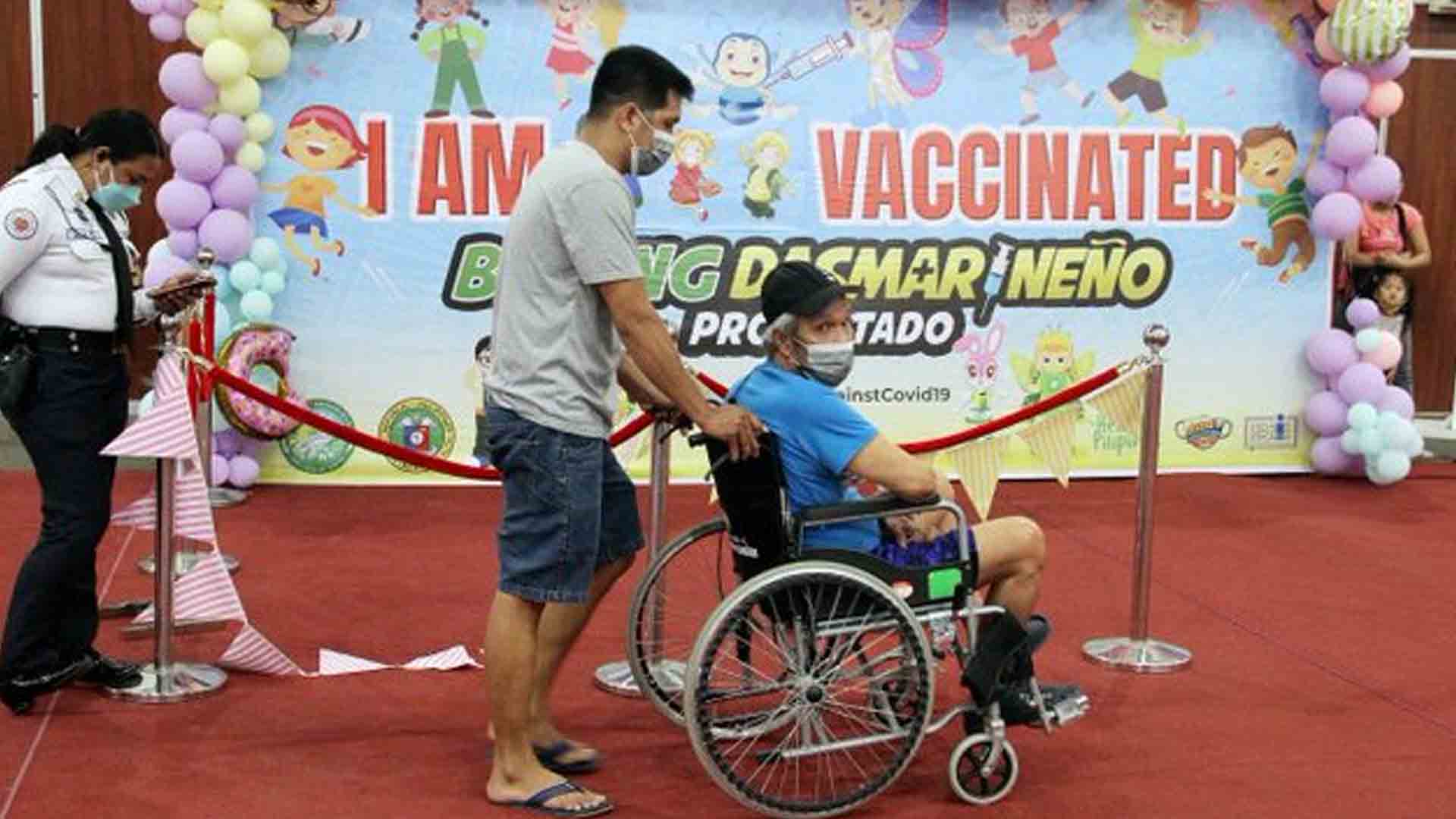About 2.4 million senior citizens nationwide are not yet vaccinated against the coronavirus disease 2019 (Covid-19), a health official said Monday.
In a Laging Handa briefing, Health Undersecretary Myrna Cabotaje noted that only 68 percent of the target senior citizen population have received their first dose of Covid-19 jabs, 70 percent have been fully vaccinated and 14 percent already got booster shots.
“Hindi naman vaccine hesitancy, ‘yung iba ayaw na, kasi sabi nila mamamatay na sila. (It’s not vaccine hesitancy, some senior citizens don’t want to be vaccinated because they’re already at the later years of their lives),” said Cabotaje, who is also the National Vaccination Operations Center (NVOC) chief.
To address the issue, Cabotaje said it would be best to make the vaccination process easier and quicker for senior citizens since most of them dislike going through many procedures.
Earlier, some local government units (LGUs) conducted door-to-door Covid-19 vaccination and arranged transportation to inoculation sites for senior citizens.
Currently, the NVOC is planning to bring the vaccination centers closer to senior citizens, especially in areas where the inoculation rate of this target population is low.
“Isa sa mga problema, sa (One of the problems, in) BARMM (Bangsamoro Autonomous Region in Muslim Mindanao), some of the places in the North because of cultural and religious beliefs,” Cabotaje said.
To focus on areas needing attention, Cabotaje guaranteed the NVOC will work more closely with the senior citizen groups and the LGUs.
“Importante ang mga senior citizen kasi sila ang most at risk at most vulnerable kung sila ay magkasakit, sila ang mag-o-occupy ng ating mga hospitals at sila ang magkakaroon ng serious disease sila ang malaking risk na mamamatay (Our senior citizens are important because they are most at risk and most vulnerable and when they get sick and they will occupy the hospitals and have serious disease and at big risk to die),” she said. (PNA)







